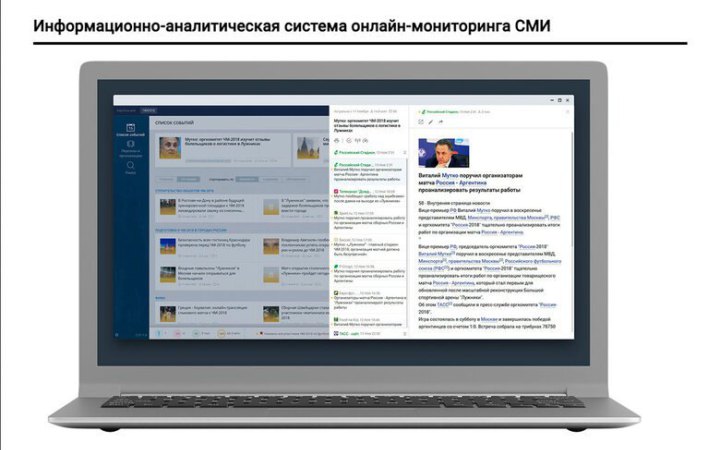Ukrainian hackers from the Cyber Resistance group have hacked into the Department of Information and Mass Communications of the Russian Ministry of Defence.
They provided the international intelligence community InformNapalm with unique internal documentation and access to software used by Russian military propagandists.
InformNapalm notes that the Department of Information and Mass Communications of the Russian Ministry of Defence is the "kingdom" of notorious Igor Konashenkov.
"This is the person who daily reads out Russian reports from the combat zone with his mouth. In the Ukrainian consciousness, Igor Konashenkov has long since become a walking meme, because it was he who, like a parrot, repeated the phrase 'there are no losses' in the first weeks of the invasion and claimed thousands of destroyed Ukrainian tanks – more than Ukraine had had before the invasion," the community said.
The community notes that the fictional and distorted "alternative reality" created by the reports from the Russian Ministry of Defence is not a figment of Konashenkov's imagination.
"Thanks to the documentation we have received, it becomes clear to us how detached from the real state of affairs the entire Information Department of the Russian Ministry of Defence is. Employees of the department and the press services of the military districts and fleets under its control are constantly analysing the Russian information field. Everything that is directly or indirectly related to news about the activities of the Russian Armed Forces is reflected in various reports. Moreover, foreign media publications are analysed separately," the researchers add.
The Russians use specific software to collect reporting information, the Katyusha online media monitoring information and analytical system.
Cyber Resistance hacktivists have gained access to this system.
Katyusha is similar to SemanticForce. It was developed by the private company M13, which specialises in information technology in the field of media monitoring. In addition to Katyusha, the company has the Arsenal system. The M13 software is used by the Russian presidential administration, the government, federal ministries and agencies, regional state executive bodies, commercial companies, and NGOs. In 2021, the occupiers' Ministry of Defence purchased a licence to use Katyusha, allocating 320 million roubles until 2023 inclusive.
Katyusha monitors the media around the clock. According to the developer, the database has 40,000 sources: Russian federal and regional media, foreign Russian-language media and "key" foreign media. It classifies information by time, topics, headings, named objects and media types. The system assesses the quality of information in terms of tone and audience reach and monitors key Russian traditional media and social networks. Katyusha displays the main news events of the day, week or a selected period and detects coordinated information attacks.
"However, when analysing this system, we came to the conclusion that Katyusha is a kind of Potemkin's village. Obviously, the Defence Ministry's DIMC uses it for reporting purposes. However, the system clearly misrepresents the tone of the messages. Negative messages about the Russian Armed Forces and the Russian military and political leadership are either not taken into account or marked as neutral. It's a kind of eyewash, no negative about the radiant Putin or the army, no failures. It's a kind of digital Konashenkov – 'there are no losses'," it says.
The system analyses mainly the Russian information space. Western and Ukrainian media are included in the database, but they have to be searched manually and do not affect the overall picture. Any analysis is mainly based on Russian censored and self-censored sources. There were some negative news in the system too. However, the extensive Russian propaganda system throws dozens of positive news at one "negative" news item, shifting attention and shifting the focus quite effectively.
"After the successful defeat of the Russian Black Sea Fleet headquarters on 22 September, we personally watched online how the Russian propaganda machine reacted quickly and, adapting on the fly, formed completely different meanings," InformNapalm added.








